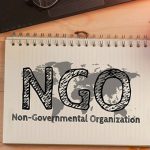Thailand Law Blog
Primary Laws Governing the Operations of Foreign NGOs in Thailand
As mentioned in the previous article (Operating a Foreign Non-governmental Organization in Thailand), one of the two primary laws governing the operations of foreign NGOs in Thailand is the Regulations of the Ministry of Labor and Social Welfare on the Entry of Foreign Private Organizations to Operate in Thailand B.E.2541 (1998). The aforementioned regulations detail […]
Operating a Foreign Non-governmental Organization in Thailand
Non-governmental organizations (NGOs), both domestic and foreign, play an important role in advancing civil society and economic development in Thailand. Foreign NGOs represent a potential source of technological transfer and material support, which is vital for a developing country. However, international organizations that may be interested in operating in Thailand must first contend with a […]
Criminal Law: Crime of Misappropriation
Under Thai law, if an unmarried couple breaks up, is it possible for the boyfriend to demand return of money that was given to the girlfriend during the relationship? And if so, how much of it can he get back? Under normal circumstances, the answer to that question would simply be negative. However, it would […]
Unregistered Condominium Projects in Thailand
In Thailand, the Condominium Act of B.E. 2522 (1979) provides for the registration of a condominium project. In order to register a condominium project, the developer must owned the land upon which the condominium project is situated. Once the project is registered, the Land Department official is able to issue title deeds for individual units […]
Authority of Company Liquidators
When a company is dissolved in Thailand, it must thereafter be liquidated, wherein its debts are paid, its assets are distributed to the shareholders, and all of its other remaining affairs are settled. During the liquidation phase, company liquidators must be appointed in order to conduct the aforementioned duties. The company liquidators will have the […]
Company and Partnership Offenses in Thailand
Thailand has strict laws regulating the operation of companies and partnerships. Unlike in some other jurisdictions, violations of company and partnership laws are criminal offenses in Thailand and may result in either imprisonment or fines depending on the severity of the offense. Therefore, it is imperative, especially for foreign entrepreneurs who are less familiar with […]
Shareholders’ Right of Inspection
Under Thai law, the shareholders of a limited company are its legal owners and are entitled to certain rights according to the Civil and Commercial Code. Nevertheless, due to the nature of a limited company, the ownership rights of shareholders are not absolute and, for example, are not the same as those of the partners […]
Foreign Business License: Installation, Repair, and Maintenance Services
A common business activity for foreign multinationals that set up business operations in Thailand is installation, repair, and maintenance services. This refers to the installation, repair and maintenance of machinery, tools, and equipment used in the manufacturing process. However, this business activity falls within the scope of Category (21) of List Three of the Foreign […]
Consumer Protection in Thailand: Advertising
Advertising in Thailand is subject to the Consumer Protection Act of B.E. 2522 (1979), in addition to other laws depending on the type of product or service. The Act creates serious criminal penalties for any violations; therefore, it is important for businesses to ensure that their advertisements are compliant, in order to limit any possible […]
Agency Law in International Commerce in Thailand
An important consideration when conducting an international commerce business in Thailand is the issue of agency relationships between a distributor and the overseas supplier or manufacturer. Where an agency agreement has been created, the general rule of law is that principals are held liable to third parties, such as purchasers, for the authorized actions of […]



















